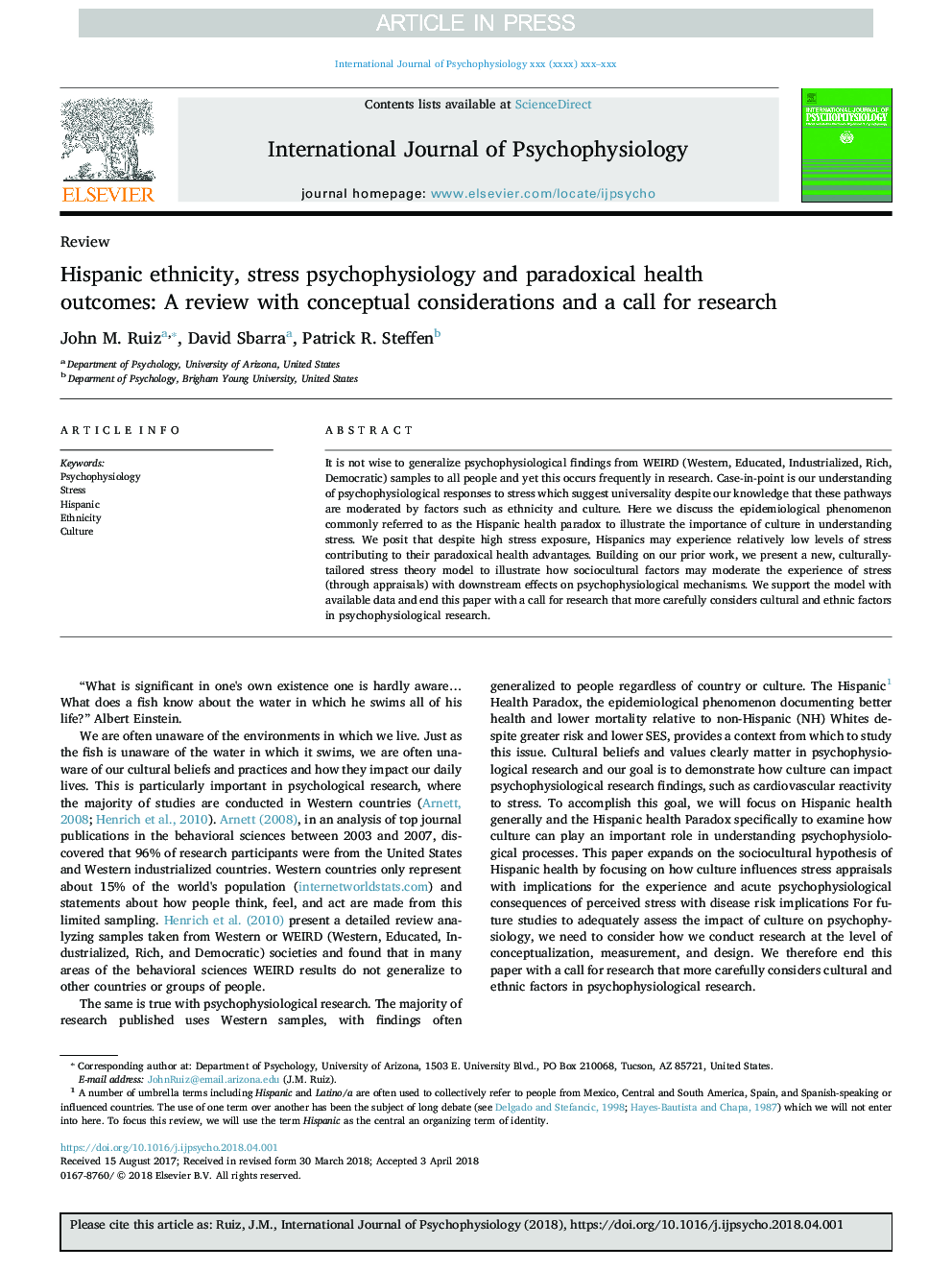| Article ID | Journal | Published Year | Pages | File Type |
|---|---|---|---|---|
| 8947899 | International Journal of Psychophysiology | 2018 | 6 Pages |
Abstract
It is not wise to generalize psychophysiological findings from WEIRD (Western, Educated, Industrialized, Rich, Democratic) samples to all people and yet this occurs frequently in research. Case-in-point is our understanding of psychophysiological responses to stress which suggest universality despite our knowledge that these pathways are moderated by factors such as ethnicity and culture. Here we discuss the epidemiological phenomenon commonly referred to as the Hispanic health paradox to illustrate the importance of culture in understanding stress. We posit that despite high stress exposure, Hispanics may experience relatively low levels of stress contributing to their paradoxical health advantages. Building on our prior work, we present a new, culturally-tailored stress theory model to illustrate how sociocultural factors may moderate the experience of stress (through appraisals) with downstream effects on psychophysiological mechanisms. We support the model with available data and end this paper with a call for research that more carefully considers cultural and ethnic factors in psychophysiological research.
Related Topics
Life Sciences
Neuroscience
Behavioral Neuroscience
Authors
John M. Ruiz, David Sbarra, Patrick R. Steffen,
